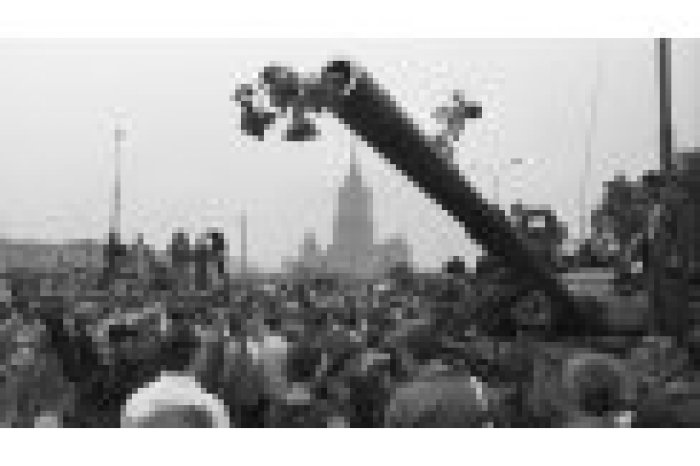August 1991: Review of a failed coup d'etat (II)
16:13 | 19.08.2021 Category:
The first day of the 1991 coup d’etat started in a triumphalist way for the coup promoters, but ended with clear-cut signs that the authors of the coup d’etat did not take into account the new realities from the USSR after 1985. Following 70 years of Stalinist prison, the people were willing freedom and the nations of the great empire – independence. The parliaments from the regions were already elected by democratic voting and took over a good deal of the centre’s powers. The people were choosing another life than the one proposed by the authors of the coup d’etat.
On the night of 19 to 20 August, hundreds of thousands of Moscow residents took to streets. Civilians started fraternizing with a part of the Russian servicemen sent with clear order to resort to repressions against the demonstrators. The situation radicalized even more after three people who tried to stop a convoy of tanks had been killed. In a short time, more motorized units aligned to defend the White House against the authors of the coup d’atat. A photo with Boris Yeltsin on a tank was spread all over the world and in a single day he became the most popular personage in the world. Some of the army generals started already negotiating with the Russian president and the commander of the special airborne troops Pavel Gusev and his deputy Aleksandr Lebed declared full faithfulness to the democratic forces.
Meanwhile, in Chisinau, all the state’s institutions were guarded by thousands of unarmed people, who came following an appeal by Moldova’s leadership. This was not at all a symbolic thing, as movements of troops were noticed around Chisinau on the night of 19 to 20 August. There were sources from inside the security bodies informing about the compilation of lists of people who were to be imprisoned in the case of the success of the coup d’atat. This was occurring both nationally and regionally.
In this situation, Moldova’s leadership ruled to delegate the first deputy parliament speaker, Ion Hadarca and Foreign Affairs Minister Nicolae Tiu to Bucharest. They had the task to create a government of Moldova in emigration in the case of the success of the coup d’etat. Moldova’s representatives had meetings with Romanian Foreign Affairs Minister Adrian Nastase, Prime Minister Petre Roman and President Ion Iliescu. We can suppose that Iliescu did not quite like the idea.
Moldova’s parliament convened at an extraordinary meeting on 21 August. In the beginning of the meeting, the situation was still tense. The MPs hostile to the democratization were enthusiastic and were making explicit statements on backing the coup d’etat. Most democratic lawmakers toughly condemned the attempt of the coup d’etat. At the same time, an extraordinary meeting of the Russian parliament took place in Moscow, which adopted a clear position against the usurpers of the state power. By the noon, news was received about the resumption of the broadcasting of more radio and TV stations in Moscow. Closer to the evening, a competition between the representatives of the coup d’atat and the comrades of Yeltsin began. Everybody wanted to quicker come to Foros, in order to impose their own viewpoint to Gorbachev. Aleksandr Rutskoy, a fellow close to Yeltsin, managed to be the first to take out of the isolation the first and the last head of the Soviet state.
Also by the end of the 21 August day, the atmosphere radically changed in the Moldovan parliament. The MPs who were plainly backing the coup d’etat in the morning changed their discourse and lawmaker Piotr Shornikov even asked to remove his message in the support of the coup d’atat from the meeting’s short report. The parliament unanimously adopted a Declaration which ended as follows: ‘’In this crisis moment, when the democratic achievements and reforms are in danger, Moldova’s parliament expresses firm decision to continue the fight for the republic’s sovereignty and independence.’’
To be continued

